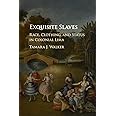
Amazon Prime Free Trial
FREE Delivery is available to Prime members. To join, select "Try Amazon Prime and start saving today with FREE Delivery" below the Add to Cart button and confirm your Prime free trial.
Amazon Prime members enjoy:- Cardmembers earn 5% Back at Amazon.com with a Prime Credit Card.
- Unlimited FREE Prime delivery
- Streaming of thousands of movies and TV shows with limited ads on Prime Video.
- A Kindle book to borrow for free each month - with no due dates
- Listen to over 2 million songs and hundreds of playlists
Important: Your credit card will NOT be charged when you start your free trial or if you cancel during the trial period. If you're happy with Amazon Prime, do nothing. At the end of the free trial, your membership will automatically upgrade to a monthly membership.

Download the free Kindle app and start reading Kindle books instantly on your smartphone, tablet, or computer - no Kindle device required.
Read instantly on your browser with Kindle for Web.
Using your mobile phone camera - scan the code below and download the Kindle app.

Indigenous Writings from the Convent: Negotiating Ethnic Autonomy in Colonial Mexico (First Peoples: New Directions in Indigenous Studies) Paperback – Illustrated, February 15, 2013
Purchase options and add-ons
Sometime in the 1740s, Sor María Magdalena, an indigenous noblewoman living in one of only three convents in New Spain that allowed Indians to profess as nuns, sent a letter to Father Juan de Altamirano to ask for his help in getting church prelates to exclude Creole and Spanish women from convents intended for indigenous nuns only. Drawing on this and other such letters—as well as biographies, sermons, and other texts—Mónica Díaz argues that the survival of indigenous ethnic identity was effectively served by this class of noble indigenous nuns.
While colonial sources that refer to indigenous women are not scant, documents in which women emerge as agents who actively participate in shaping their own identity are rare. Looking at this minority agency—or subaltern voice—in various religious discourses exposes some central themes. It shows that an indigenous identity recast in Catholic terms was able to be effectively recorded and that the religious participation of these women at a time when indigenous parishes were increasingly secularized lent cohesion to that identity.
Indigenous Writings from the Convent examines ways in which indigenous women participated in one of the most prominent institutions in colonial times—the Catholic Church—and what they made of their experience with convent life. This book will appeal to scholars of literary criticism, women’s studies, and colonial history, and to anyone interested in the ways that class, race, and gender intersected in the colonial world.
- Print length248 pages
- LanguageEnglish
- PublisherUniversity of Arizona Press
- Publication dateFebruary 15, 2013
- Dimensions6 x 0.8 x 9 inches
- ISBN-100816530408
- ISBN-13978-0816530403
Book recommendations, author interviews, editors' picks, and more. Read it now.
Frequently bought together

Customers who viewed this item also viewed
Editorial Reviews
Review
“One of the great strengths of this study is Díaz’s detailed discursive analysis of the numerous examples of religious literature that proliferated during the period . . . which have often been neglected by historians and literary scholars alike. Mónica Díaz’s fascinating and highly interdisciplinary study will be of great interest to specialists in the history and literature of colonial Latin America.”—Chasqui
“Contributes significantly to colonial studies, women’s and religious history, as well as to a more nuanced understanding of late colonial Hispanic American (especially Mexican) institutions and peoples. More specifically, it provides a context for and analysis of the written record surrounding the establishment and running of the Corpus Christi convent for indigenous women. Mónica Díaz’s study of a richly complex society provides a clear theoretical framework, brings together useful material about colonial religious discourses, and paves the way for further research and investigation.”—Hispanic Review
“[Díaz] has forged new interpretations by correlating her re-reading with knowledge from little-known sources. Her book is an elegant and well-written exploration of the complexities of colonial discourse about gender and ethnicity.”—The Americas
“A welcomed addition to the growing research on the adaptations and transformations of Indian elites in colonial society, as well as the study of convent writings in Colonial Spanish America.”—South Atlantic Review
“Díaz has done a very good job of acknowledging precursive and pioneering works in history, literature, and ethnic studies while establishing her own critical originality. Her occupation of a cultural studies viewpoint is in contrast to previous studies by both historians and literary critics, supporting her conclusions and opening new lines of dialogue.”—Jennifer L. Eich, author of The Other Mexican Muse: Sor María Anna Águeda de San Ignacio (1695–1756)
From the Back Cover
About the Author
Mónica Díaz is an assistant professor at Georgia State University, where she teaches colonial Latin American literature and culture.
Product details
- Publisher : University of Arizona Press; Illustrated edition (February 15, 2013)
- Language : English
- Paperback : 248 pages
- ISBN-10 : 0816530408
- ISBN-13 : 978-0816530403
- Item Weight : 13.6 ounces
- Dimensions : 6 x 0.8 x 9 inches
- Best Sellers Rank: #3,020,597 in Books (See Top 100 in Books)
- #2,653 in Mexico History
- #9,891 in Discrimination & Racism
- #14,175 in Cultural Anthropology (Books)
- Customer Reviews:
About the author

Discover more of the author’s books, see similar authors, read book recommendations and more.
Customer reviews
- 5 star4 star3 star2 star1 star5 star58%0%42%0%0%58%
- 5 star4 star3 star2 star1 star4 star58%0%42%0%0%0%
- 5 star4 star3 star2 star1 star3 star58%0%42%0%0%42%
- 5 star4 star3 star2 star1 star2 star58%0%42%0%0%0%
- 5 star4 star3 star2 star1 star1 star58%0%42%0%0%0%
Customer Reviews, including Product Star Ratings help customers to learn more about the product and decide whether it is the right product for them.
To calculate the overall star rating and percentage breakdown by star, we don’t use a simple average. Instead, our system considers things like how recent a review is and if the reviewer bought the item on Amazon. It also analyzed reviews to verify trustworthiness.
Learn more how customers reviews work on AmazonTop reviews from the United States
There was a problem filtering reviews right now. Please try again later.
- Reviewed in the United States on January 1, 2015This book is a very well researched study of female natives who were permitted to be nuns in colonial Latin America. I recommend it to anyone who is interested in or studying early Latin American history and literature.











